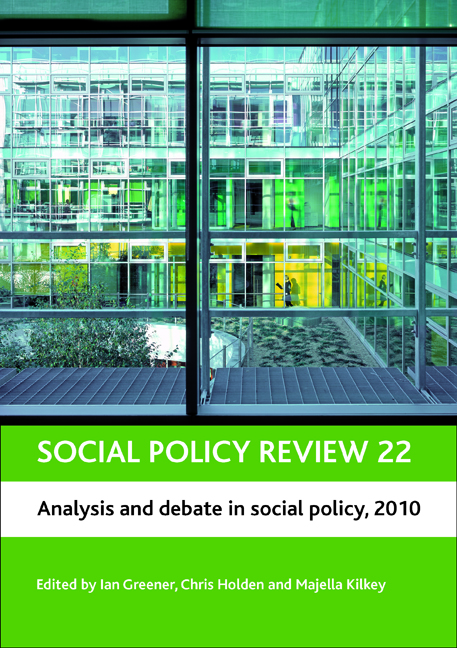eight - ‘Flexibility’, xenophobia and exploitation: modern slavery in the UK
Published online by Cambridge University Press: 01 September 2022
Summary
“Slavery … I didn't know about all these forms that existed. I think it's largely because we aren't expecting it. It is hidden. Generally people would not believe that it is possible under modern conditions. They would say ‘No I think you are making it all up’, because it's just too incredible.” (Archbishop Desmond Tutu, 1999, cited in Craig et al, 2007)
Background
In 2007, commemorative events were held across the UK marking the bicentennial of the abolition of the British transatlantic slave trade, many implying also that slavery had been abolished. Continuing campaigns of the Anti-Slavery Society and others from the mid-19th century onwards indicate, however, that slavery itself had not been abolished. It persists today (Bales, 2004; van der Anker, 2004), but what is less well known is that modern slavery remains a significant facet of the UK economy. Media coverage focuses typically on the treatment of those in slavery in ‘less-developed’ countries, particularly in Asia and Latin America. Occasional media coverage of horrific events in the UK, such as the drowning of 23 Chinese irregular workers picking shellfish in Morecambe Bay, or the suffocation of migrants in sealed lorries, typically regards these as ‘one-offs’, not representative of a wider phenomenon. This chapter challenges that perception, arguing that slavery is increasingly common within the UK both directly and indirectly, and that the framework of legislation and policy to address it remains inadequate. It focuses on issues of human trafficking and forced labour, the most common forms of slavery in the contemporary UK, but will also allude to indirect complicity in modern slavery elsewhere. It suggests the need for a much more effective regulatory framework. This is unlikely to happen while the identification of those likely to be in slavery is managed within the context of both a punitive immigration policy and an increasingly deregulated economy. Adel Abadeer (2004) summarises the ways in which modern slavery is obscured within the UK (cited in Craig et al, 2007):
Modern-day slavery victims are typically very poor, vulnerable and marginalised … they are unaware of the imperfect nature of contract or of transaction terms, the process of enslavement, and they lack viable secondary sources.
- Type
- Chapter
- Information
- Social Policy Review 22Analysis and Debate in Social Policy, 2010, pp. 173 - 198Publisher: Bristol University PressPrint publication year: 2010



